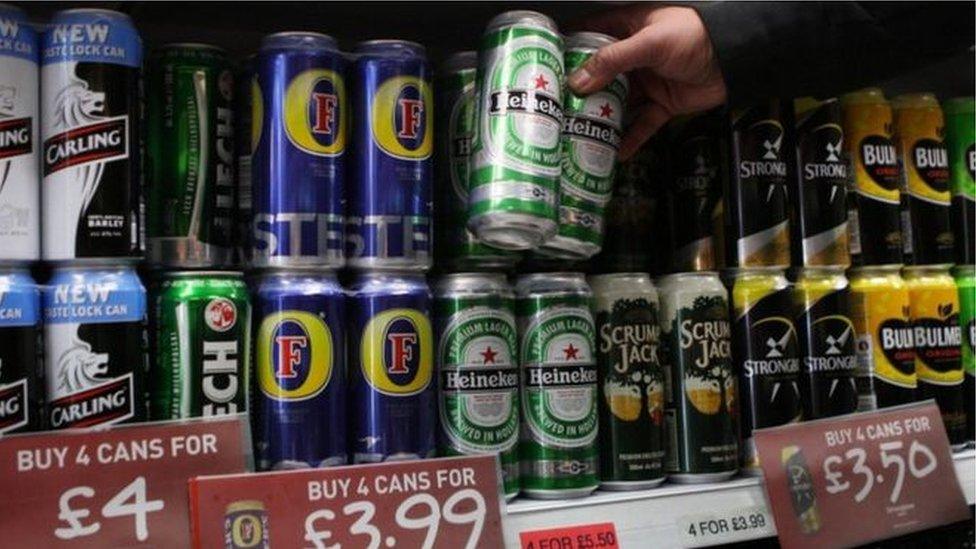Portugal opposes Welsh minimum alcohol price law
- Published
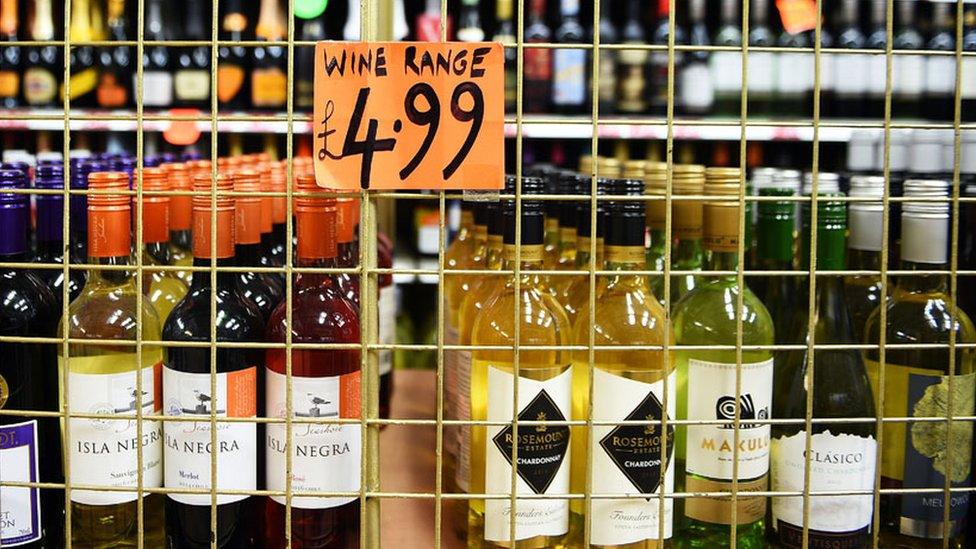
More than 40% of wine sales in Wales are cheaper than 50p per unit
The Portuguese government is concerned its country's wines would be "less competitive" in Wales under plans for a minimum price of alcohol.
Portugal has warned the plans could have "direct implications" on the free trade rules of the EU market.
The Welsh Government wants to charge 50p a unit - meaning a bottle of wine could cost at least £4.69.
A new system was expected to be in place this summer but has been delayed because of Portugal's intervention.
BBC Wales has received a copy of Portugal's "detailed opinion" on the Welsh Government's regulations - a method used by EU countries to object to other member states' plans.
The Portuguese government's economic ministry argues: "There are Portuguese operators who export wines to Wales whose consumer price is lower than the minimum price, therefore the application of a minimum unit price means that many of these wines will suffer an increase in price, which will make them less competitive in that market."
It suggests increased taxation on alcohol could be "less restrictive" than a minimum unit price since it would still offer sellers "the freedom to determine their selling price."
The Assembly reported that alcohol sold below 50p per unit made up 72% of the beer sales in Welsh shops and supermarkets, 78% of the cider sales, 42% of the wine and 66% of the spirits.
Welsh ministers believe tackling excessive drinking could save a life every week and prevent 1,400 hospital admissions a year.
Portugal was one of five countries that objected to the Scottish Government's plans for minimum pricing in 2013 - along with France, Italy, Spain and Bulgaria.
The policy was eventually introduced there in May 2018 after the Supreme Court ruled the policy was proportionate.
A report published last month showed alcohol sales in Scotland had fallen to their lowest levels since records began in the early 1990s, although the authors said it was too early to quantify the impact of minimum pricing.
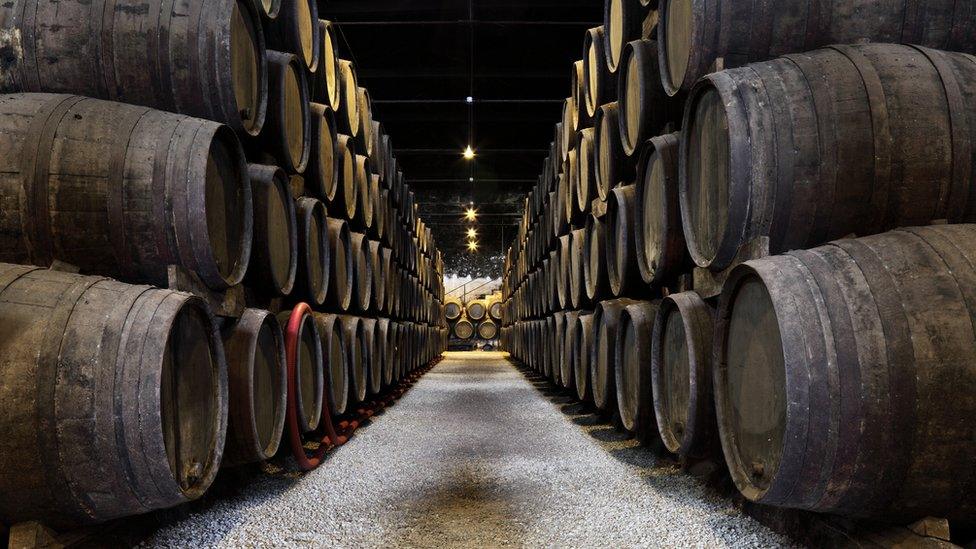
Portuguese wine makers fear they would be less competitive in Wales because of a minimum price rise
But Portugal questions whether the minimum unit plans are a proportional policy response and calls for more evidence to prove they have "the desired effect for public health in the long term."
"Portugal considers the commitment to concerted policies and strategies is imperative, which focus on moderate alcohol consumption and clarify the effects of the excessive consumption of alcohol," it said.
"It is thus possible to safeguard the issue of public health and at the same time (comply) with the principle of the free movement of goods."
New government regulations concerning products imported by member states are subject to a "standstill period" of at least three months, which means a proposed plan cannot be enforced in that time.
But because Portugal has issued a "detailed opinion", the "standstill period" has been extended to 21 August.
Wales' Health Minister Vaughan Gething has said he anticipates the regulations will come into in force by "early 2020".
- Published19 June 2019
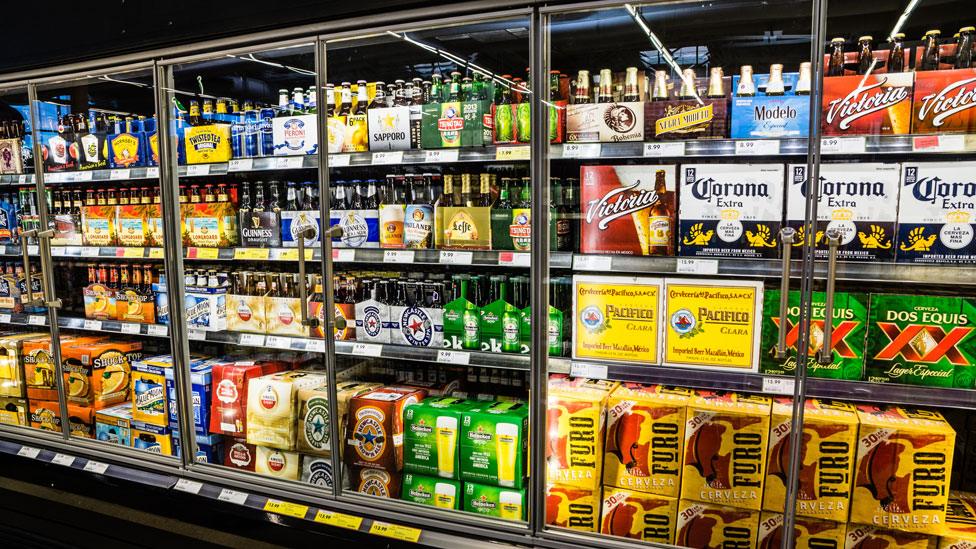
- Published19 June 2019
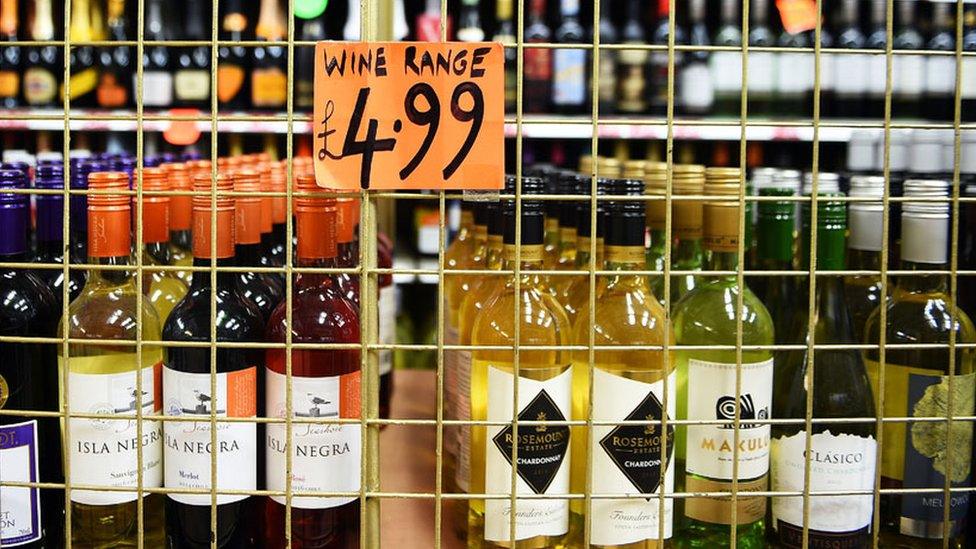
- Published28 September 2018

- Published19 June 2018

- Published15 November 2017
